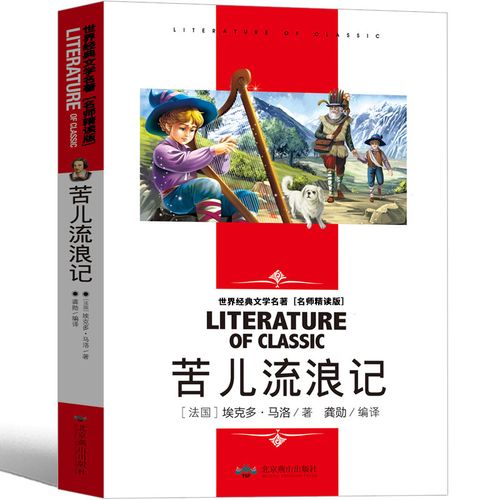Fred是什么意思d在线翻译读音例句-把爱放开
2023年4月5日发(作者:陆兆禧演讲)
1
修辞语翻译课程7
英汉语成语修辞与翻译
概括地说,成语既是语言中的重要修辞手段,同时他们本身也是各种修辞手段的集中表现。有的意思一望
即明,有的意蕴隽永,有的含而不露、意在言外,有的可能包含几个意思。恰当运用成语,对语言表达来说犹如
画龙点睛,可以增加行文的风采,提高表述力。但由于英汉语之间的社会文化的历史背景的差异和语言结构不
同,往往给词语教学和翻译带来一定的困难。通过对英汉成语从不同的角度进行比较,我们发现英汉成语有些
是基本对应的,有些是部分对应,有些是根本不对应的。所以,我们在理解和翻译处理时应有区别地对待。
英汉成语互译举例:
1.直译:有些成语在形、义100首最著名宋词 和用法上全貌表现出来的直接采用直译的方法,如:
agentleman’sagreement君子协定;toplaywithfire玩火,toshowone’scards摊牌;
Weneverknowtheworthofwatertillthewellisdry.井干方知水可贵;
Thebreadofcharityisbitter.施舍的面包是苦的。
天下乌鸦一般黑,老狼都是吃肉的。Allcrowsareequallyblack,allwolveseatmeat.
Awolfinsheep’sclothing披着羊皮的狼。
2.借译:英语和汉语都拥有丰富的成语。有的汉语习语和英语同义习语在内容和形式上都符合,它们不但有
相同的意义或隐义,并且有相同的及相类似的形象或比喻,翻译时,可以采取借用法。
Anappledoesnotfallfarfromtheappletree.落叶归根;
Knowsomethinglikethepalm了如指掌;
Likefatherlikeson.有其父必有其子;
haveonefootinthegrave风烛残年;
Constantdripping《答谢中书书》原文 wearsthestone滴水穿石;
putthecartbeforethehorse本末倒置;;
sixofoneandhalfadozenoftheother.半斤八两;
Thespiritiswillingbutthefleshisweak.心有余而力不足;
3.意译:在直译和借用汉语成语都不妥当时,我们只好牺牲原文引用习语的风格,配合上下文进行意译,以保
持原作思想内容的完整性。例如:
byhookorbycrook不择手段;blacksheep害群之马;
buildacastleinSpain(theair)白日做梦;此习语直接引用自法语chateauenEspagne(西班牙的城堡),相当于英
语的acastleintheair(空中楼阁)。相传在古代摩西人统治西班牙时,有位法国人自吹自擂地说要把城堡带到
西班牙。但是事实上他在西班牙遗弃了一位妙龄少女。
getthedroponsomeone先发制人;抢先拔枪瞄准(某人)
骑虎难下我们可以翻译为rideatigerandhavenowaytobackdown。
有时,我们也可以直接用英语中的成语翻译汉语成语,如爱屋及乌Loveme,lovemydog.,拆东墙补西墙,rob
PetertopayPaul
Peter(彼得)是耶酥的十二使徒之一,又被称为SaintPeter(圣•彼得),耶酥殉难之后Peterr(彼得)成
为使徒的首领。Paul(保罗)又被称做SaintPaul,后来,他成为向非犹太人传教的基督教使徒。同是耶酥
的弟子,那么抢劫其中一人去偿还另一个,自然就是没有任何意义的了。这也就相当于我们汉语中常说的“拆
了东墙补西墙"。BorrowingmoneyfromanotherpersonforrepayingdebtislikerobbingPetertopayPaul.借另
一个人的钱来还债实际上是拆东墙补西墙,毫无意义。
4.改译:翻译,作为两种语言之间以传达语义为主要目的的语言交际活动,在很大程度上依赖着语境。修辞学
的各个领域:语体、风格、文风、修辞方法、语言美、言语修养等都与语境有关,语言的使用要受到语境的制
约,修辞效果要结合语境来考察。同一习语的译法必须根据上下文不同,灵活地加以处理。
如:“谋事在人,成事在天。”“Manpreposes,Goddisposes.”Goddisposes是基督教词语,在下面句子中,译文要做
2
相应的改变。
“谋事在人,成事在天”,咱们谋到了,靠菩萨的保佑,有些机会,也未可知。(《红楼梦》第六回)
Manpreposes;taplan,trusttoBuddha,andsomethingmaycomeofitforallyouknow.
话中提到菩萨(Buddha)是佛教词语,如不改变会造成矛盾,所以只好把“God”改成“Heaven”。
5.增译减译:为使译文简洁、流畅,使之读起来顺口,听起来悦耳,英汉互译时,可进行增译减译。班门弄斧Show
offone’sproficiencywiththeaxebeforeLuBanthemastercarpenter.
如果不在译文中加上themastercarpenter,只译LuBan,恐怕大多数英国人不知道LuBan是何许人。
有些成语在译为英语时用不着把每个字的字面意思都译出,有些意义在译文中已体现出来就省去不译。
山雨欲来风满楼?Thesweepingwindheraldsarisingstorm.译文保留了原文的主要比喻,“山”、“楼”,这些字
眼的介绍,不但无助于整个译文的表达效果,反而会分散读者的注意力。
6.直译法和意译兼用:有时为了更确切地表达原意,可同时采用直译和意译兼并的办法翻译习语。
tobecaughtredhanded当场被抓;
搬起石头打自己的脚Liftingarockonlytohavehisowntoessquashed;
Cautionistheparentofsafety.谨慎为安全之本;
不到黄河心不死。Untilallisoverambitionneverdies.
7.语境和文体也有密切的关系。有些成语在译文需要保全原文的风格,如果成语是古语,就要翻得古雅些,成
语是通俗口语,就要翻得生动活泼:
以其人之道,还治其人之身Dountohimashisdoesuntoothers;
无可奈何花落去;Flowersfalloff,dowhatonemay;
“写情书,就要像一封情书,不能像篇干干巴巴的八股。”(周立波)Alovelettermustbelikea
loveletter,notlikeadrytextbook.
8.有些成语可以褒贬两用,翻译时要根据上下文区别对待。
试比较:Tobehandand(in)glovewith在下列句子中的不同含义。Thetwofriendsarehandinglovewitheach
other.这两位朋友亲如手足。Thetraitorsandtheenemywereworkinghandinglovewitheachother.卖国贼和
敌人勾结。Everyofficialishandinglovewithhim.当官的跟他穿一条裤子。
9.共识文化使英汉成语中有些成语意思一致,翻译时可直译。但是往往会驾轻就熟而拒用外来成语。
Twoheadsarebetterthanone.如译为“三个臭皮匠胜过诸葛亮”,在外国语境中出现一个历史人物,显得有些滑
稽,可译为:一人不及两人智。
Whokeepscompanywiththewolfwilllearntohowl.这个英语成语使我们很快想到“近朱者赤,近墨者黑”。如
直译:“跟狼作伴,就要学会狼叫”,会更加形象些。
又如:Wherethere’ssmoke,there’sfire.有人译“无风不起浪”。但译成:“有烟必有火;无火不起烟”即保留了原
语的民族色彩,又形象生动。
10.汉语中的四字格成语结构整齐、优美匀称、言简意赅孟浩然简介50字 。但译成英语时,不能仅从字面意义去译,而应该领
会其精神实质,只要译出其中一组的意思就可以了。
例如:花言巧语finewords;油嘴滑舌glibtongue;长嗟短叹sighingdeeply;吞吞吐吐stumbling,hesitating;千
丝万缕innumerablelinks;;土崩瓦解fallapart
有时两个表示同一个意思的汉语成语连在一起,在修辞上起了美化音调、形式以及加强语气
的作用。英译时,这种成语没有兼收并蓄的必要。例如:
“取之不尽,用之不竭”,英译时仅用“inexhaustible”一词就把意思清楚地表达出来了。
11.有些成语形象相对,但翻译时不能等同对待,应注意提防“假朋友”。
towakeasleepingwolf自找麻烦,有人误认为是“打草惊蛇”
awalkingskeleton“枯瘦如柴”;有人误译为“行尸走肉”
tothrowasprattocatchaherring是“吃小亏占大便宜”而不是“抛砖引玉”的意思。
烈火炼真金,患难见真情
3
有人译成:Fireisthetestofgold;adversityisthetestoffriendship.这句译文虽然很好,老外也能了解,但是
他们还有另外的说法:
Liquorbringsoutaperson\'struecolor.(烈酒能显示一个人真正的特色)或:Winerevealsaperson\'strueheart.
虽然老外不用\"烈火炼真金\"的比喻,但有\"路遥知马力\"的说法:
Byalongroad,weknowahorse\'sstrength;attimesofdifficulty,wediscoverafriend\'struecharacter.
MoremethodsofChineseidiomtrans七夕表达爱意的句子 lation
on“反面着笔法(negation)有时也称正说反译或反说正译
Sometimesnegationalsowascalledthattoexpresspositivelybutbetranslatednegativelyortoexpresspositively
butbetranslatednegatively.
⑴“塞翁失马,焉知非福?”isarhetoricalquestion,butthetranslationis“Dangerisnextneighbortosecurity.”
whichisanaffirmationdeclarativesentence.
⑵我很高兴看见你安然无恙。――Iamgladtoseeyousafeandsound.
InChinese,“无恙”means“haven’tgotillness”,translation――
“sound”,whosemeaningis“健康”,isexpressedpositively.
“英语中有许多含有否定或半否定语气的词语,在翻译中可充分利用,以便使译文符合英语习惯,并
使句子结构多样化。”(The牛郎织女的诗句古诗大全 re
arefullyusedintranslation,thetranslationwillconformtotheEnglishcustomandthesentencestructuresare
morevaried.)
⑶Forexample:“木已成舟”Englishtranslationis“things
donecannotbeundone”whichexpressestheidenticalmeaningfromthedenialdeclarativesentenceangle.
⑷“不入虎穴,焉得虎子?”isarhetoricalquestion,whosetranslationis“nothingventure,nothinghave”.
Itisanaffirmationsentence.
反面着笔的方法在实际翻译中如果用的恰到好处,常常会使译者绝处缝生,是英汉翻译中非常有用的一个
技巧。
raseisamethodthattheimageandtheformsoftheoriginaltextarepreserved,whichcanbetranslated
ineseidiomshave
similarimages,whichtheforeignreaderscanassociatetotheequivalentEnglishidioms.
2.1LiteralTranslation
SomeChineseidiomscanbetranslatedliterallywiththesamevividfigurativeresultoftheoriginalones,which
canmaketheforeignreadersassociatetotheequivalentEnglishidioms.
⑴对牛弹琴――derscanassociateittotheequivalentEnglishidiom“tocast
pearlsbeforeswine”.
⑵竭泽而渔――Todra礼记乐记原文 inapondtocatchallthefish(theequivalentidiom:Tokillthegoosethatlaysthe
goldeneggs.)
⑶易如反掌――Tobeaseasyasturningoverone’shand(theequivalentone:Aseasyasfallingoffalog.)
⑷口蜜腹剑――Tobehoney-mouthedanddagger-hearted(theequivalentone:AJudaskiss)
ThoughtherearenotequivalentEnglishidioms,someChineseidiomswiththeliteralmeaningscanalsobe
:
⑸井底之蛙――Tobelikeafrogatthebottomofawell
⑹史无前例――Tobewithoutprecedentinhistory
ement
eidiomshavesamemeaningsandculturemessagesasthoseinthetargetlanguage.
TherearemanyChineseandEnglishidioms,whichhavethesameimagesaswellastheexpressionforms.
4
⑴InChinese,“浑水摸鱼”指在浑浊的水中摸鱼。[用法]比喻趁混乱的时机捞取不正当的利益,也作‘混
水摸鱼’。”ButtheEnglishidiom“tofishintroubledwater”means“takeadvantageoftroubledoruncertain
conditionforpersonalprofit”.Thesetwoidiomsaresimilarinbothexpressionformandintrinsicmeaning.
Thesimilaridiomsareasfollows:
⑵赴汤蹈火――Gothroughfireandwater⑶随波逐流――Togowiththetide
⑷知识就是力量――Knowledgeispower.⑸眼不见,心不烦――Outofsight,outofmind.
⑹谋事在人,成事在天――Manproposes,goddisposes
⑺空中楼阁――Castlesintheair⑻充耳不闻――Turnadeafearto
neseidioms,whichhavesameorsimilarvividanalogywiththeEnglishidioms,shouldbeexchanged
entlanguageshavedifferentimages.
⑴IftranslatorstranslatetheChineseidiom“胸有成竹”directlyinto“haveabambooinone’sstomach”
eignreadersnotonlyhavedifficultiesingettingthemeaningthatthis
idiomcontained,ore,thetranslatorsmustdiscardtheimagesin
thisidionslationis“havea
cardinone’ssleeve”
⑵“噤若寒蝉”(asmuteasawintercicada),yettheEnglishsay,“asmuteasafish”.Fishandcicadahavesimilar
s“silence”isconcerned,fishisa
familiarimagetoEnglishspeakers,yettheChinesetendtoassociatethesensewithwintercicada.
ThesimilarChineseidiomsincluded:
胆小如鼠――Astimidasarabbit挥金如土――Spendmoneylikewater
东张西望――Lookrightandleft缘木求鱼――Seekahareinhen’snest
抛砖引玉――Tothrowasprattocatchaherring
ineseidiomsandEnglishidiomsarealmostthesameintheexpressionform,butthecommendatoryor
derogatorymeaning,whichtheidiomscontained,cannotbemutuallytranslated.
Forexample,inChina,ore,mostdog-relatedidiomsincludethe
derogatorymeaning.
⑴Forexample,“狐朋狗友(Packofscoundrels)”,“狼心狗肺(heartlessandcruel)”he
westernnation,thedogwasconsideredashuman\'mple:“helpalamedogoverastile(雪
中送炭)”,“loveme,lovemydog.(爱屋及乌)落的拼音 ”.
⑵Forexample:theChineseidiom“笑掉大牙”includesthemeaning“ridicules”.TheEnglishidiom“tolaugh
offone’shead”isonlytheexpressionof“laugh”or“laughloudly”.woidioms
cannot
bemutuallytranslated.
raseisamethodthattheoriginalcontentsarepreserved,buttheformsarechangedinthetarget
language.
3.1Substituteconcreteimagesforabstractconcept
SomeChineseore,intranslation
process,thetranslatorsshouldboldlydiscardtheseimagesandtranslatetheconnotationofthemappropriately.
⑴Forinstance:ifthetranslatorstranslate“顺手牵羊”directlyinto“walkoffwithasheep”accordingtothe
eignreadersmaymisunderstandthatthethievesinChinaonlystealthesheepbutnot
nesereadershaven’idiom,“thesheep(羊)”isaconcrete
thingwhichrefersto“others\'thingperhapstheproperty”.Itexpressesanabstractconceptwiththeconcrete
thing.
⑵“狗急跳墙”,wedonotneedtodescribespecificallythat“howanxiousthedogis(狗急)”,and“howitto
5
jumpthewall(跳墙)”.Aslongasweexpresstheintrinsicmeaning,theforeignreadersmaybeclearataglance
whenwetranslateitas“dosomethingdesperate”.
Moresimilaridiomsare:
⑶粗枝大叶―Tobecrudeandcareless.(Deadtranslation:withbigbranchesandlargeleaves)
⑷灯红酒绿―Dissipatedandluxurious.(Deadtranslation:withredlightsandgreenwine)
(5)开门见山―Tocomestraighttothepoint.(not:toopenthedoorandseethemountain)
3.2Additionalremarks&Note
“Additionalremarks”refersto“toincreasetherelatedinformation,whichmayhelpunderstandtheintrinsic
meaningoftheidiominthetranslationprocess.”Itisusuallyconcise.
⑴你这是班门弄斧。――“YouareshowingoffyourproficiencywithanaxebeforeLubanthemastercarpenter.”
Inordertohelpforeignreadersunderstandthemeaningoftheidiom,translatorsadd“showingoffyour
proficiency“toindicatetheconnotationof“班门弄斧”andalsoaddsomebackgroundknowledgeofthisidiom,
thatistosay,hodoftranslationnotonlymakesthetranslationprecisebut
alsotakesthemeaningexpressionandtheculturalexchangeintoaccount.
(2)“东施效颦”maybetranslatedas“TungshihimitatesHsishih”(Hsishihwasafamousbeautyintheancient
ihwasanuglygirlwhotriedtoimitateherway).Itsconcealedmeaningis“imitates
otherstomakeafoolofoneself”.
(3)Ifwetranslate“八仙过海”to“theeightfairiescrossedthesea”withoutintroducing“八仙(theeight
fairies)”arecharactersintheChinesemythstory,orewemustaddthe
annotation:theeightfairiesofTaoismin七律长征歌曲 Chinesefolklore.
更多推荐
undone是什么意思one在线翻译读音例句








发布评论